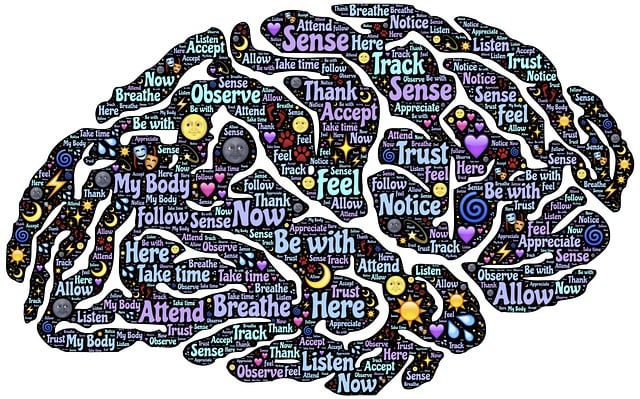Stress, a common modern challenge, can lead to mental health issues like anxiety and depression when persistent or overwhelming. Denver Phobias Therapy tackles specific fears and anxieties, reducing stress levels through root cause analysis. This approach boosts resilience and promotes well-being. Stress management is key, involving positive thinking, self-care, communication strategies, and identifying personal triggers. Cultural sensitivity in mental healthcare, including practices like mindfulness and journaling, enhances long-term benefits. Denver Phobias Therapy offers specialized help for phobia treatment and community outreach to spread stress management knowledge.
Stress management is a vital component of maintaining optimal mental health. In this article, we explore various techniques and strategies to combat stress, focusing on the transformative power of Denver Phobias Therapy. We’ll delve into the science behind stress and its profound impact on our well-being, offering insights on how to navigate and mitigate daily stressors. Through effective methods and lifestyle adjustments, you can gain control, enhance resilience, and cultivate a calmer, more balanced life. Discover practical steps towards a stress-reduced existence with Denver Phobias Therapy as your guide.
- Understanding Stress and Its Impact on Mental Health
- The Role of Denver Phobias Therapy in Stress Management
- Effective Techniques for Daily Stress Mitigation
- Incorporating Stress Management into Your Lifestyle
Understanding Stress and Its Impact on Mental Health

Stress is a normal part of life, but when it becomes overwhelming and persistent, it can significantly impact mental health. Understanding stress involves recognizing its various forms—from acute ‘fight or flight’ responses to chronic, long-term pressures—and their effects on the mind and body. In today’s fast-paced world, many individuals face constant stressors related to work, relationships, financial constraints, or personal challenges, leading to anxiety, depression, and other mental illnesses. Denver phobias therapy, for instance, addresses specific fears and anxieties that can be debilitating, offering valuable crisis intervention guidance.
Beyond individual coping strategies, Mental Illness Stigma Reduction Efforts play a crucial role in creating supportive environments. Community outreach programs aimed at raising awareness and implementing practical solutions can foster understanding and reduce the societal stigma associated with mental health issues. By integrating these initiatives, communities can enhance Crisis Intervention Guidance, ensuring individuals receive timely assistance during stressful situations. Such proactive measures contribute to overall well-being, empowering people to manage stress effectively and lead healthier lives.
The Role of Denver Phobias Therapy in Stress Management

Denver Phobias Therapy plays a pivotal role in equipping individuals with effective stress management techniques. This specialized form of treatment delves into the root causes of specific phobias, which often act as triggers for heightened stress levels and anxiety. By addressing these fears, therapy facilitates a profound increase in resilience building, enabling clients to confront and overcome stressful situations with greater ease.
Moreover, Denver Phobias Therapy contributes to broader mental well-being by fostering effective risk management planning for mental health professionals. Through community outreach program implementation, therapists not only reach a wider audience but also promote awareness about stress management strategies. This holistic approach ensures that individuals from diverse backgrounds gain access to tools and techniques that enhance their ability to navigate and mitigate stressors in daily life.
Effective Techniques for Daily Stress Mitigation

Stress is an inevitable part of life, but managing it effectively can significantly improve overall well-being. For those seeking comprehensive solutions in Denver Phobias Therapy, there are numerous techniques to combat daily stress. One powerful tool is cultivating positive thinking; replacing negative thoughts with optimistic ones can lessen anxiety and promote mental resilience. Encouraging clients to engage in regular self-care practices, such as exercise, meditation, or hobbies, also forms a robust defense against stress.
Additionally, communication strategies play a vital role in burnout prevention. Learning to express emotions healthily and setting clear boundaries at work and in personal relationships can help individuals manage their stress levels effectively. These techniques empower individuals to navigate challenging situations with composure, enhancing their ability to cope with life’s curveballs.
Incorporating Stress Management into Your Lifestyle

Incorporating stress management into your daily routine is a powerful step towards a healthier and more balanced lifestyle. It’s about recognizing that managing stress isn’t a one-time fix but an ongoing practice. Start by identifying your personal triggers; is it work deadlines, financial worries, or perhaps specific phobias, like heights or spiders (a common theme in Denver Phobias Therapy)? Once identified, you can begin to implement strategies tailored to you.
Cultural sensitivity in mental healthcare practice plays a significant role here. Different techniques resonate with different people, so finding what works for you might involve exploring various methods. Communication strategies, such as mindfulness meditation and deep breathing exercises, are simple yet effective tools to instantly relieve anxiety. Other practices like yoga or journaling can offer long-term benefits by improving your ability to navigate stressful situations.
Stress management is a vital skill to master, and with techniques like Denver Phobias Therapy, individuals can effectively navigate life’s challenges. By understanding stress triggers and adopting daily mitigation practices, one can significantly improve mental well-being. Incorporating these strategies into your routine allows for a more balanced lifestyle, ensuring you’re equipped to handle stress in healthy, sustainable ways.












